Online Courses
"Your Educational Journey Starts Here"Short Courses

View Course
Antiarrhythmic Pharmacology
Antiarrhythmic agents used to treat a variety of atrial and ventricular arrhythmias require a high level of clinical knowledge for safe and effective prescribing, administration, patient counseling, and evaluation. This Antiarrhythmic Pharmacology course will enhance your understanding of these high risk medications. The course will discuss the link between the cardiac action potential and the drug mechanism of action, to provide a physiological framework for the use of these medications. Agents are discussed by classification with characteristics and nursing implications of specific agents highlighted. Clinical decision making is guided by algorithm, based on patient and drug specific features. Evidence from the American College of Cardiology, American Heart Association, and Heart Rhythm Society for the management of supraventricular, atrial, and ventricular arrhythmias serve as the foundation for clinical recommendations.
Please Note: This course can be purchased as part of a package in the CV Pharmacology Essentials Course.
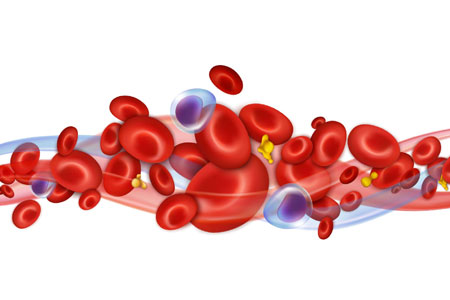
View Course
Antiplatelet and Anticoagulation Pharmacology
Fibrinolytics, antiplatelet and anticoagulants are not interchangeable medications. Understanding the right situation for use can impact lives. This pharmacology short course will discuss when to use fibrinolytics, when to use anticoagulants, and when to used antiplatelet medications in patients with acute coronary syndromes, atrial fibrillation, stroke, or venous thromboembolic disease. With patient safety being a high priority, this course discusses safe practice including assessing risk versus benefits, essentials for prescribing, issues in administration, evaluation of effectiveness, and monitoring for adverse outcomes. The challenges of managing patients with triple therapy will be discussed incorporating the newest guidelines. Case studies are used to help with practical application.
Please Note: This course can be purchased as part of a package in the CV Pharmacology Essentials Course.
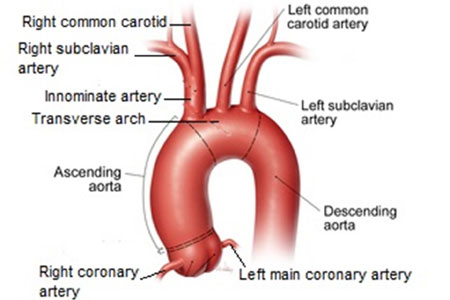
View Course
Arterial and Venous Disease
There is a high prevalence of vascular disease in the patients we serve and there are serious associated clinical consequences. This course provides a comprehensive overview of the recognition and management of common clinical problems in patients with arterial and venous disease. Course content includes discussions on peripheral arterial disease, critical limb ischemia, acute arterial occlusion, aortic aneurysms, venous thromboembolic disease, and pulmonary embolism.
Please Note: This short course is part of the Cardiac Vascular Nursing Certification Review Course and is being offered as an individual CE offering for those not purchasing the CVN Review Course.
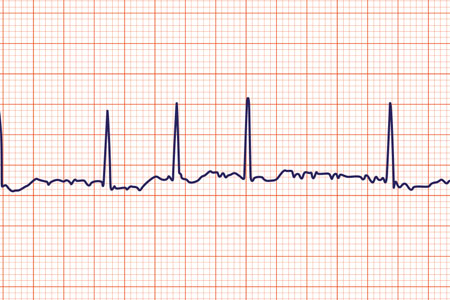
View Course
Atrial Arrhythmias
The presence of atrial fibrillation alters cardiac function and places the patient at risk for stroke. Effective management and patient education requires knowledge of rate and rhythm control strategies and an understanding of stroke risk and prevention options. This course provides an overview of the comprehensive management of atrial fibrillation including pharmacological and non-pharmacological strategies. In addition to atrial fibrillation, the nuances of atrial flutter will also be presented.
Please Note: This course was recorded as part of the Cardiac Rhythm Management course and is being offered as an individual CE offering for those not purchasing that course.
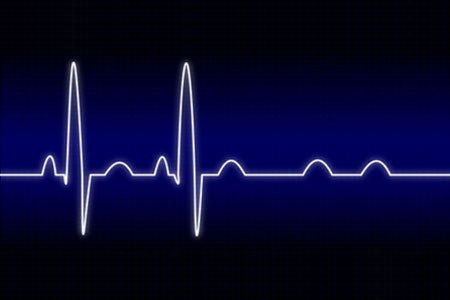
View Course
AV Blocks & AV Dissociation
AV blocks are among the most confusing arrhythmias encountered in clinical practice. This class presents an updated classification system for AV blocks and discusses in detail the following AV blocks: First Degree, Second Degree, Type I, Second Degree, Type II, High Grade Block and Third Degree Block. Ladder diagrams are used to illustrate rhythm strips, and instructions for constructing ladder diagrams and using them as a teaching aid are presented. The four causes of AV dissociation are presented along with examples of each.

View Course
CAD: What’s New in the Evaluation of Chest Pain and Revascularization Recommendations
This course is Part of a 4 course Webinar Series called Level Up for Excellence. This series was designed to help you stay current in your practice with the vast amount of evidence-based information available. We know you need the most current information to care for and manage increasingly complex patients with acute and chronic illness. We synthesize the latest information for you and present relevant and practical applications. Knowledge is power but wisdom is lifesaving, and wisdom is what you will gain in this webinar series. During this particular course the most recent guideline updates related to the care of patients with coronary artery disease and those undergoing revascularization will be discussed. Join Karen as she walks you through the new Chest Pain Guidelines, and discusses the latest in formation in the treatment of CAD and offers practical tips for implementation. This course is appropriate for nurses and advanced practice nurse who care for patients with actual or suspected coronary artery disease.
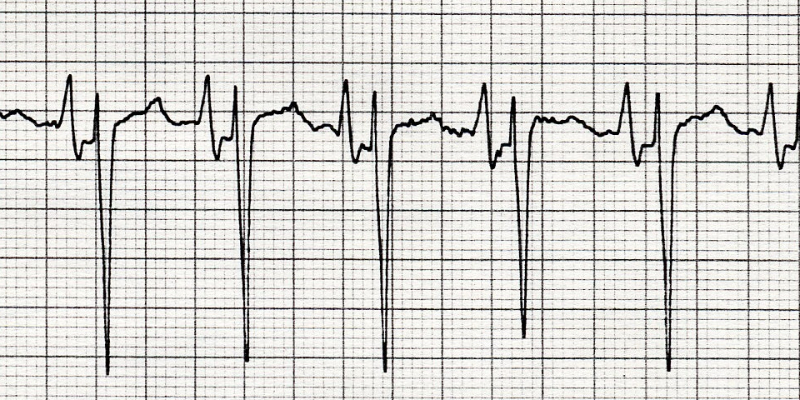
View Course
Cardiac Arrhythmias and Monitoring Short Course
Are you new to Arrhythmia interpretation? Great, this course is just for you. This short course provides the learner with the fundamental knowledge required for accurate arrhythmia Interpretation. Topics include AV blocks, bundle branch blocks, tachycardias, atrial fibrillation, supraventricular tachycardias, ventricular tachycardias, and Torsades de Pointes. You will finish this course with practical information to immediately apply in your practice.

View Course
Cardiac Assessment and Hemodynamic Principles
Cardiac assessment and hemodynamic principles are the foundation of good clinical practice in all areas of healthcare. The number 1 diagnostic tool for recognizing valvular heart disease is a stethoscope when used to identify a new murmur. All patients have hemodynamics and rarely does a nurse have hemodynamic data from a pulmonary artery catheter to assess hemodynamics. Did you know that you can use patient’s BP and HR to gain insight into hemodynamic parameters including stroke volume and left ventricular afterload? This course will help you enhance your current clinical assessment skills and increase your confidence in your clinical practice as you apply these principles to practice.

View Course
Cardiovascular Risk Factors
According to the Center for Disease Control, heart disease is the leading cause of death in the United States with one person dying every 37 seconds from cardiovascular disease. Nurses play a crucial role in reducing the burden of cardiovascular disease through risk factor education and counseling. This cardiovascular risk factor course will discuss the AHA Life’s Simple 7, the impact of activity on CV health, tobaccoism, hypertension, hyperlipidemia, and sleep disorder breathing. Nurse who have a better understanding of these risk factors will be better equipped to help patient’s move to a healthier version of themselves.
Please Note: This short course was recorded as part of the Cardiac Vascular Nursing Certification Review Course and is being offered as an individual CE offering for those not purchasing the CVN Review Course.
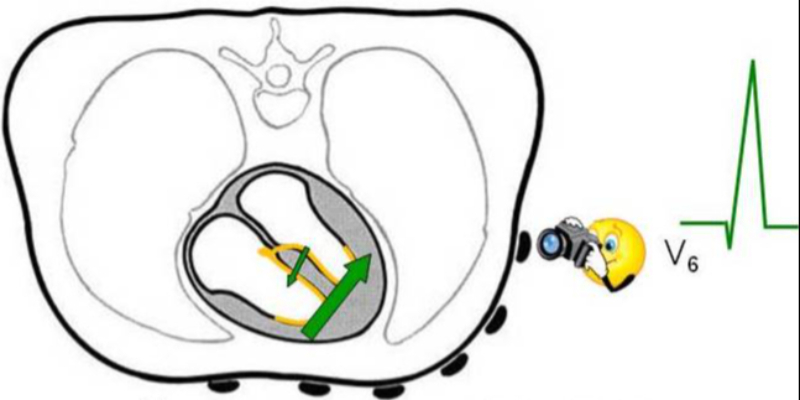
View Course
ECG Basics Short Course
Are you new to ECG interpretation? Great, this course is just for you. This short course provides the learner with the fundamental knowledge required for accurate ECG Interpretation. Topics include lead placement, the view from each lead, normal ECG criteria, cardiac axis, bundle branch block, and electrolyte effects. You will finish this course with practical information to immediately apply in your practice.
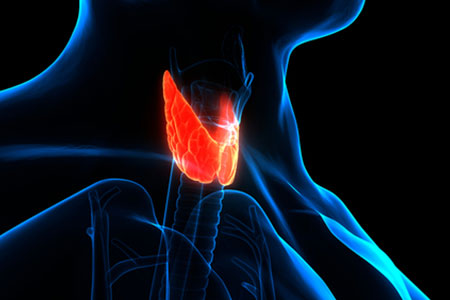
View Course
Endocrinology Review
Many patients in our community and in our hospitals have chronic endocrine diseases such as diabetes mellitus or hypothyroidism but also present with acute endocrine issues. This Endocrine Review is designed to walk you through key points to consider when caring for patients with endocrine disorders. Topics range from monitoring chronic stable disorders and helping to ensure you are confident in your care of patients with diabetes and thyroid disorders while also reviewing acute endocrine events (DKA, HHNS) and not so common endocrine disorders (diabetes insipidus and adrenal insufficiency).
Please Note: This course is part of the Acute and Critical Care Core and Comprehensive Courses.

View Course
Everything New in Heart Failure Care: Quad Therapy and Other Guideline Updates
This course is Part of a 4 course Webinar Series called Level Up for Excellence. This series was designed to help you stay current in your practice with the vast amount of evidence-based information available. We know you need the most current information to care for and manage increasingly complex patients with acute and chronic illness. We synthesize the latest information for you and present relevant and practical applications. Knowledge is power but wisdom is lifesaving, and wisdom is what you will gain in this webinar series. During this particular course the new AHA/ACC/HFSA 2022 Guidelines for the Management of Heart Failure will be discussed. This update will review and discuss key changes in the new guidelines including the updated staging for heart failure, the new “Quadruple Therapy” recommendations for patients with HFrEF, options for patients with HFpEF, information on initiation and uptitration of medications, and the most recent guidelines on sodium and fluid restrictions. Join Cindy as she walks you through the updates with some practical tips for implementation. This course is appropriate for nurses and advanced practice nurse who care for patients with heart failure in any setting.
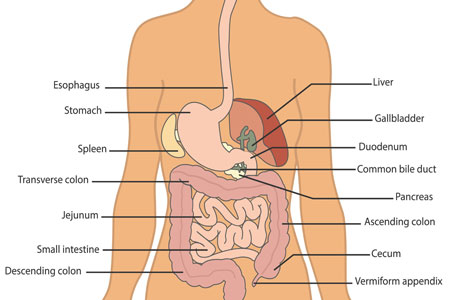
View Course
Gastrointestinal Review
The gastrointestinal system often does not get the attention it deserves in the acute care setting. Digestion, nutrition, and immune health all rely on a healthy gut. Multiple things can go wrong secondary to critical illness. This Gastrointestinal Review will discuss some of the most common disorders seen in the acute care environment and some not so common. Some of the topics covered in this course include: the acute abdomen, intestinal perforation, intestinal ischemia, bowel obstruction, hepatitis, chronic and acute liver failure and pancreatitis. The course will also discuss nutritional strategies in the acute ill patient and intrabdominal pressure monitoring.
Please Note: This course is part of the Acute and Critical Care Core and Comprehensive Courses.

View Course
Heart Failure Care: Acute Decompensation and Stage D HF
This course contains excerpts from the Art and Science of Heart Failure Care Boot Camp and provides up to date, evidence-based practice education specific to the issues in heart failure care commonly seen when a patient requires hospitalization. The course covers the care of the heart failure patient admitted with acute decompensation and the patient with stage D heart failure.
This course provides 3.9 CE of heart failure specific education that will meet criteria for your recertification as a Certified Heart Failure Nurse.

View Course
Heart Failure Pharmacology: Quad Therapy and Beyond
Are you finding it hard to keep up with the pharmacologic management of heart failure? What is the difference in treating patients with HFrEF and HFpEF? Are there any options for patients with HFmrEF? What are the caveats with “Quad” therapy? This course is designed to help you stay current in your practice with the vast amount of evidence-based information available. We know you need the most current information to care for and manage increasingly complex patients with acute and chronic illness. We have synthesize the latest information for you and present relevant and practical applications. Knowledge is power but wisdom is lifesaving, and wisdom is what you will gain in this course.
Please Note: This course can be purchased as part of a package in the CV Pharmacology Essentials Course.

View Course
Heart Sounds: Assessment and Clinical Application
The identification of abnormal heart sounds in the acute environment can provide advanced assessment data in a critically ill patient and the identification of clinical changes requiring urgent interventions. This program focuses on the skills required for comprehensive and accurate cardiac auscultation. Beginning with an understanding of how heart sounds relate to the cardiac cycle and the fundamentals of auscultation, this program reviews the normal “lub dub” appreciated with routine auscultation and expands from there. You will develop skills and techniques for auscultation that improve your ability to identify abnormal sounds. Chronic and acute abnormalities will be reviewed with tips for easy identification. In addition to the most common sounds of aortic stenosis and chronic mitral regurgitation this session covers auscultation abnormalities associated with both chronic and acute situations. This short course will teach you both the science and the art of cardiac auscultation. Audio recordings of heart sounds are used to enhance your learning.

View Course
Neuro Review
This Neuro Review is designed to clear up the confusion and provide clarity and understanding regarding neurologic disorders seen in acute and critical care. This course will cover stroke, brain tumors, encephalopathy, encephalitis, seizure disorders, neuromuscular disorders, closed head injuries, intracranial hemorrhage, skull fractures, spinal cord injuries and brain death. During the presentation the principles of intracranial monitoring will also be covered.
Please Note: This course is part of the Acute and Critical Care Core and Comprehensive Courses.

View Course
Pharmacological Management of Diabetes in Acute and Critical Care
Are you challenged with understanding the rights and the wrongs of managing diabetes in the hospital setting? Are you frustrated watching patients go from hyperglycemia to hypoglycemia and lack the confidence to understand which adjustments in treatment are the right ones? The management of blood glucose in the acute and critical care environment can be challenging but important. There are specific targets for blood glucose that improve outcomes in hospitalized patients. Critical illness alters oral intake and metabolic needs which call for changes in the treatment of DM. From monitoring to prescribing, this course will enhance your understanding of diabetes management as we reinforce concepts you already know and adds concepts that you are less comfortable with. This course is jam packed with practical tips that will help improve outcomes in patients with diabetes and increase your confidence when caring for them.
Please Note: This course can be purchased as part of a package in the CV Pharmacology Essentials Course.
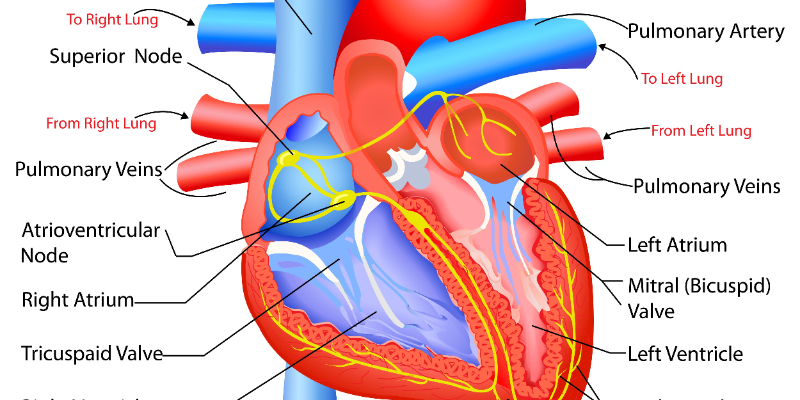
View Course
Pulmonary Artery Catheter and Hemodynamic Monitoring
Safe practice in the care of a patient with a pulmonary artery (PA) catheter requires a high level of knowledge and skill. Pulmonary artery catheters may be infrequently used in many practice settings and thus continuing education regarding nursing responsibilities for a PA catheter is vital. This short course equips you with knowledge and skills for accurate and safe hemodynamic monitoring with a PA catheter. Also included in this course are various methods of evaluating cardiac output, functional hemodynamics, and assessment of volume responsiveness in critically ill patients. You will learn practical and meaningful clinical information to confidently evaluate your patient’s hemodynamic status and safely and accurately manage a PA catheter.
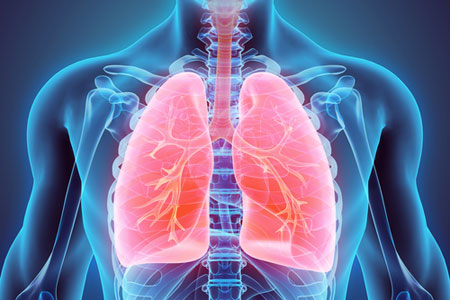
View Course
Pulmonary Review for ICU
This course is designed to strengthen your acute care skills related to the pulmonary system in the ICU. This Pulmonary Review for ICU will explore the concepts of ventilation, perfusion, and diffusion in a way that will allow you to evaluate these problems in your patients and confidently differentiate and treat ventilation and diffusion problems. You will master V/Q ratios, ABG interpretation skills, the oxyhemoglobin curve, and modes of ventilation. The content includes acute respiratory failure, COPD, status asthmaticus, sleep apnea, pneumonia, pulmonary edema, pulmonary embolism, pulmonary HTN, abnormal forms of hemoglobin, and pleural space disorders. A discussion of ARDS, specific strategies for ventilating with lung protective strategies, sedation and neuromuscular blockade, and ICU specific therapies including ECMO round out the course content.
Please Note: This course is part of the Acute and Critical Care Core and Comprehensive Courses.
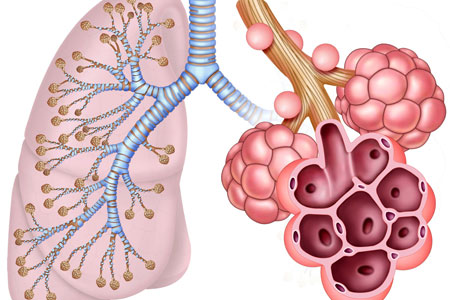
View Course
Pulmonary Review for Progressive Care
The Pulmonary Review for Progressive Care Couse is designed to bring clarity on how to best assess your patients with respiratory distress or with chronic pulmonary disease. The concepts of ventilation, perfusion, and diffusion will be presented in a way that will allow you to confidently differentiate a ventilation problem from a diffusion problem. You will practice ABG interpretation and learn how to get the most out of SpO2 and end tidal CO2 monitoring. You will also learn the treatment strategies for supporting oxygen and ventilation including noninvasive and mechanical ventilation modes. This course will cover acute respiratory failure, COPD, status asthmaticus, sleep apnea, pneumonia, pulmonary edema, pulmonary embolism, pulmonary HTN, abnormal forms of hemoglobin, and pleural space disorders.
Please Note: This course is part of the Acute and Critical Care Core and Comprehensive Courses.
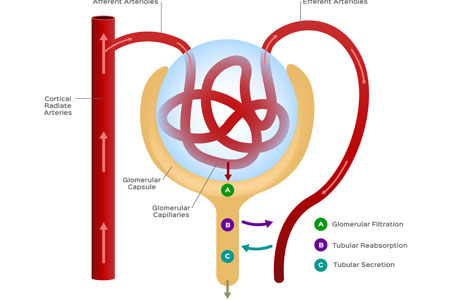
View Course
Renal Review
During this Renal Review short course the intricacies of renal disease will be discussed. Difficult concepts related to acute and chronic kidney disease will be discussed and presented in a way that makes sense and clarifies what you see at the bedside. The difference between CKD and AKI will be discussed along with strategies that can help decrease the development of AKI. The presentation helps clarify what BUN, creatinine and GFR tell us about renal function. You will learn to differentiate prerenal, from intrarenal from post renal AKI and understand how treatment strategies vary. As an extra bonus for those of you who work in the ICU the end of the program will provide a discussion on renal replacement therapy.
Please Note: This course is part of the Acute and Critical Care Core and Comprehensive Courses.

View Course
Shock States and Sepsis
This short course on Shock States and Sepsis is designed as a review on the recognition and treatment of shock states with a sub focus on sepsis. Understanding that shock occurs when there is a lack of oxygen to the tissues this course will review the basic components of delivery of oxygen to the tissues and how their alterations are recognized at the bedside in the early stages of shock. This class provides a systematic frame work to help you understand the different shock states and how treatment strategies differ. In addition to a discussion on hypovolemic, cardiogenic and distributive shock states, obstructive shocks will be briefly reviewed. The course will conclude with an overview of the definition, recognition, and treatment of septic shock. The 2021 Sepsis Guideline updates have been included in the presentation. This is a great course for the nurse who wants an overview or review on shocks states. For a much more detailed course on shock states please consider the full course on Shock States and Hemodynamics.
Please Note: This course is part of the Acute and Critical Care Core and Comprehensive Courses.
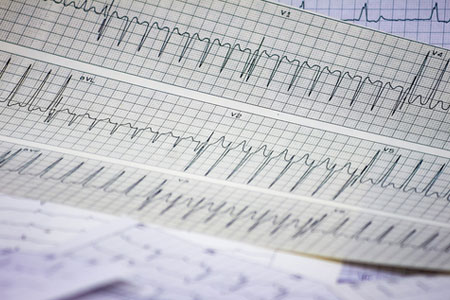
View Course
Supraventricular Tachycardias
Supraventricular tachycardias are commonly encountered in clinical practice. Sometimes understanding and differentiating these arrhythmias can be confusing. This class discusses AV nodal passive and AV nodal active tachycardias, ECG clues to identify them, and their treatment. Atrial fibrillation is not included since there is a separate class on that topic.
Arrhythmias covered include:
- Sinus tachycardia
- Atrial tachycardia
- Multifocal atrial tachycardia
- Atrial flutter
- AV nodal reentry tachycardia
- AV reentry tachycardia using an accessory pathway

View Course
Wide Complex Tachycardias
Wide complex tachycardias occur frequently in the critical care setting. Differentiating VT from SVT is a skill that available to the nurse in the critical are unit. This class presents the most useful ECG and clinical criteria for making the differential diagnosis of wide QRS tachycardias. Content includes mechanisms of aberration and when to expect it, common cause of wide QRS tachycardias, best bedside monitoring leads and use of Lewis lead and atrial electrograms for rhythm identification, and the most useful ECG clues for differentiating wide QRS beats and rhythms. Emphasis is on the value of P waves, QRS morphology clues, fusion beats, QRS axis, and clinical clues to help you make an accurate interpretation of wide QRS beats and tachycardias.
Excellence Starts Here
Keep up-to-date with live classes, products, promotions, practice pearls and online courses.
Sign up today and receive a FREE GIFT, an exclusive offer available only to new subscribers.
Cardiovascular Nursing Education Associates
Exceptional Nurses, Exceptional Patient Care
